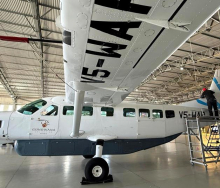The coronavirus disease (COVID-19) has had “dire consequences on a global scale”, with widespread ramifications for the recruitment of staff, says Kim Botti, director of logistics and travel personnel agency, Lee Botti & Associates.
Although initially impacting on the travel industry, Covid-19 “has filtered through to all industries and economies with many countries implementing a lockdown approach. Recruitment has come to a halt in many instances, where companies have had to carefully consider their options for survival.”
In many cases, says Kim, companies have had to retrench staff or close their doors completely.
“Five weeks has had a massive impact on their cash flow while most of their commitments are still in place. How does a company continue to pay their staff and creditors when they are not able to operate and ensure money is coming in?”
Exacerbating matters, Kim says, is the recent downgrade to a sub-par credit rating of South Africa’s sovereign debt by ratings agency, Moody’s, “putting even more pressure on an already vulnerable market”.
It all fuels an atmosphere of anxiety and apprehension, she says.
“With uncertainty in the air, decisions are hard to make as one is not sure of what lies ahead. How will things look after the lockdown and is there a possibility that this could extend for longer? The government has tough decisions to make and the impact it is having on the people of South Africa is concerning.”
Additional considerations include “will there be opportunities after the lockdown, and if companies are looking to recruit, they may need to first consider the people who have been affected by retrenchments”.
And although, as American trend analyst Faith Popcorn recently stated, remote working is becoming the new norm, it also comes with new challenges.
Kim says: "South Africans are resilient, and already with the lockdown, creativity and fresh ideas have blossomed. Many will adapt and change. After 44 years of servicing the industry we look forward to continuing to consult to the logistics industry in what will very likely be a new form.














